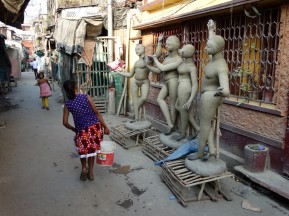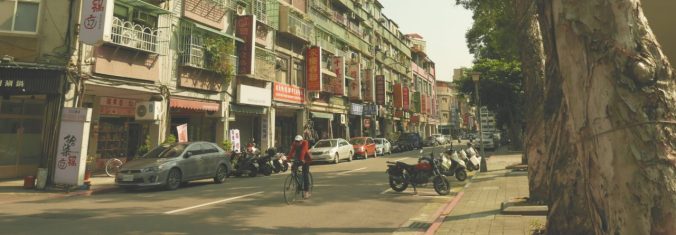What makes certain practices and sites cultural heritage? This week I took part in a very interesting panel on ‘Heritagizing Asia: The politics of time and space in Asian cities’, part of this year’s Asian Dynamics Initiative international conference in Copenhagen.
 Vietnam scholar and Professor of anthropology, Oscar Salemink came up with the idea of using the verb form of the word heritage – heritagization as a process rather than something which is merely there to be recognised and preserved. As it came out in our discussions, heritagization seems to be quite a complex process of simultaneous construction and selective erasure, taking place from the present cultural political context, directed towards the past, for preservation into the future.
Vietnam scholar and Professor of anthropology, Oscar Salemink came up with the idea of using the verb form of the word heritage – heritagization as a process rather than something which is merely there to be recognised and preserved. As it came out in our discussions, heritagization seems to be quite a complex process of simultaneous construction and selective erasure, taking place from the present cultural political context, directed towards the past, for preservation into the future.
Several interesting and thought-provoking examples of ambiguous and problematic issues of heritage came out during the ten presentations. Anthropologists Bente Wolff and Caroline Lillelund, who talked about the local reactions to the restoration of Danish colonial buildings in India, touched upon an interesting if unintentional effect of heritage preservation: The preservation of the empty space surrounding a heritage building, which seemed to be even more treasured by the local populace. If certain practices can be recognized as intangible cultural heritage that needs to be preserved, can empty space as room for such practices also be included?
 Urban geographer, Rishika Mukhopadhyay described how the idol makers of Kumartuli became the victims of their own heritagization, when their workshops were demolished in order to create a more suitable site for their heritage craft. Apart from the plight of the craftsmen now having lived in ‘temporary’ exile from their homes for more than six years, this understanding of heritage as something that can be contained and detached from its spatio-temporal context, acutely problematizes the distinction between material and intangible heritage.
Urban geographer, Rishika Mukhopadhyay described how the idol makers of Kumartuli became the victims of their own heritagization, when their workshops were demolished in order to create a more suitable site for their heritage craft. Apart from the plight of the craftsmen now having lived in ‘temporary’ exile from their homes for more than six years, this understanding of heritage as something that can be contained and detached from its spatio-temporal context, acutely problematizes the distinction between material and intangible heritage.
Professor of Modern China Studies, Marina Svensson’s paper about the development of Nanluoguxiang 南锣鼓巷 and the creation as well as commercialization of heritage neighbourhoods in Beijing reminded us to transgress the visual bias and include more senses when engaging in cultural research.
 My own presentation dealt with the relation between memory and heritage. I read Zhu Tianxin’s 朱天心 novella ‘Old Capital’ 古都 from this perspective, discovering that in the instance of this fictional investigation of Taipei, the notion of heritage preservation detached from lived experience could be as problematic as heritage destruction. In this work, preservation as a nostalgic project that excludes complicated or painful memories risk removing urban heritage from the citizens, producing alienation rather than a sense of belonging.
My own presentation dealt with the relation between memory and heritage. I read Zhu Tianxin’s 朱天心 novella ‘Old Capital’ 古都 from this perspective, discovering that in the instance of this fictional investigation of Taipei, the notion of heritage preservation detached from lived experience could be as problematic as heritage destruction. In this work, preservation as a nostalgic project that excludes complicated or painful memories risk removing urban heritage from the citizens, producing alienation rather than a sense of belonging.

 Vietnam scholar and Professor of anthropology,
Vietnam scholar and Professor of anthropology,  Urban geographer,
Urban geographer,  My own presentation dealt with the relation between memory and heritage. I read
My own presentation dealt with the relation between memory and heritage. I read